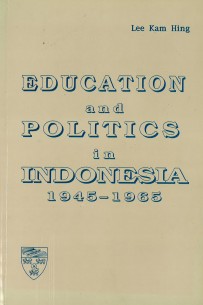There had been impressive achievements in the development of education in Indonesia during the first twenty years of independence. New schools were built, millions of students enrolled, teachers are trained, and universitites established. Less visible but just as important was the creation of an education system which, while ensuring an adminisrative structure, curricula, tektbooks, and a common language of instruction that were markedly new and different, also accommodated the religious and cultural aspirations of the various people.
Despite this progress, there was growing disappointment among Indonesians over the performacne of the the school system. Many felt that education had not responded adequately to the political and economic demands of the nation. Calls for reforms were thererfore made. However, attempts to work out changes led to serious disputes. Much of this had to do with verying expectations within society as to what education could and should do. Efforts at education reforms soon came to be drawn into the intensifying contest for political power of the Guided Democracy years.
_____________
Lim Kim Hing is attached to the History Department in the University of Malaya. He obtained his M.A. University of Malaya and his Ph.D. from Monash University, Melbourne.
Write a review
Your Name:Your Review: Note: HTML is not translated!
Rating: Bad Good
Enter the code in the box below:




